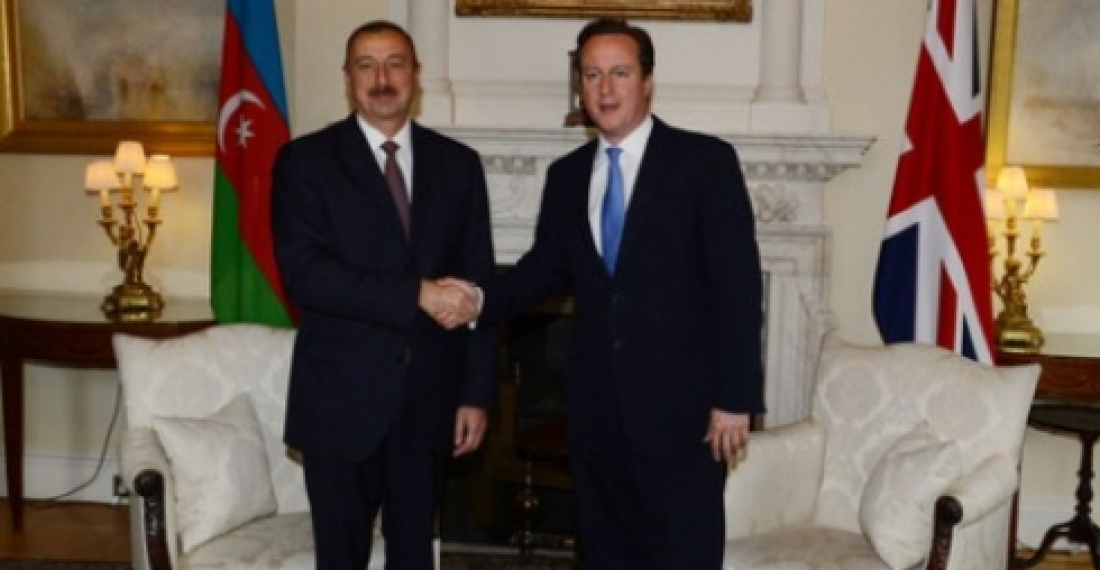The President of Azerbaijan, Ilham Aliev yesterday was at Number 10 Downing Street for a meeting with British Prime Minister David Cameron. The discussions focused on bilateral relations, as well as regional and international issues.
The website of the President of Azerbaijan said that the two leaders highly evaluated the current state of relations between the two countries. The website added that "the United Kingdom and Azerbaijan enjoy successful co-operation in a number of fields, in particular energy and non-oil sector, adding that these relations have big prospects."
Commonspace.eu political editor said in a comment, "UK-Azerbaijan relations go back a long time and both sides see a lot of benefit in the current relationship which has seen large British investments in Azerbaijani hydro-carbon industry. Political relations are also good but could be better. Over the last year there were some strains in relations after intensive criticism in the British media of Azerbaijan's human rights record. Both governments however tried not to turn this into an issue. There is no doubt however that Britain wants to see more committment on the part of the Azerbaijani government with regards to the reform agenda. The British governmentr still hopes that President Aliev will personally lead the process, despite some resistence within his government. On its part Azerbaijan is not satisfied with British support for its position on the Karabakh conflict and wants to see more British engagement with the process to resolve the conflict. Both issues would have been touched upon at the Downing Street discussions yesterday.
source: commonspace.eu
photo: President Aliev and prime Minster Cameron at their meeting in London on 7 August 2012. (picture courtesy of the Press Service of the president of Azerbaijan.)







